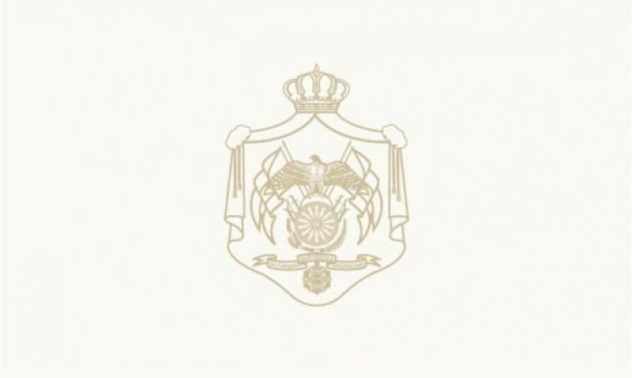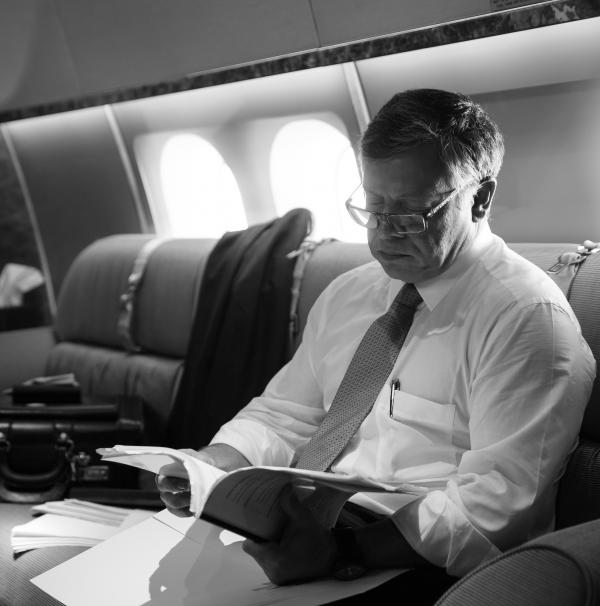Jordan’s perspective: Forgotten refugee crisis demands renewed global attention

Jordan’s perspective: Forgotten refugee crisis demands renewed global attention
Foreword by His Majesty King Abdullah II
The Wilson Quarterly
Over a year and a half into an unprecedented global pandemic and its ongoing wide scale repercussions, so many urgent challenges facing our world have unfortunately taken a backseat. One of these challenges, which has been exacerbated by the pandemic, is the global refugee crisis.
But for many around the world, including my country Jordan, the refugee crisis remains a poignant everyday reality that we cannot afford to ignore.
Granting refuge to those escaping violence and persecution lies at the very core of Jordan’s founding principles. We have opened our doors to wave after wave of refugees over the decades in one of the world’s most volatile regions. We continue to do so because this is who we are; because we cannot turn our backs on desperate mothers, children, and entire families looking for a safe haven.
Jordan hosts the second highest number of refugees per capita globally. We host nearly 3.6 million refugees of different nationalities. Refugees, including those registered with the UNHCR and UNRWA, make up almost a third of our population. It is the equivalent of having nearly 109.4 million refugees living in the United States. The majority of these refugees live among host communities rather than in refugee camps.
For Syrian refugee children who turned ten this year, Jordan is the only country they know. As a whole generation of Syrian refugees comes of age in Jordan and other host countries, the need arises for a new development-focused approach to boost education and healthcare services, and address pressure on infrastructure and employment.
The sudden surge in Jordan’s population, particularly with the wave of Syrian refugees over the past decade, has come with its share of challenges, compounding economic difficulties and increasing pressure on our severely limited water and energy resources, in addition to posing challenges to food security.
Nevertheless, Syrians study at our schools, receive treatment at our hospitals, and are vaccinated against COVID-19 at our vaccination centres. We believe in the importance of providing vaccines, health care, and education to the refugees we host, because their wellbeing and advancement will ultimately reflect on our own wellbeing and advancement.
Many of them have not allowed displacement to define them and have chosen to become proactive in the betterment of themselves and their host communities. They are the entrepreneurs and the farmers, the artists and the designers, the doctors and the scientists.
This September, Waleed, an Iraqi who has taken refuge in Jordan, began his work as a dermatologist at a hospital in Irbid Governorate. He is one of several refugees from Iraq, Syria, and Yemen who are also medical professionals that responded to a UNHCR call to refugees in Jordan with previous experience in the medical sector to pitch in, amidst the ongoing response to the COVID-19 pandemic.
At the Zaatari Refugee Camp for Syrian refugees, crops are being grown at the hands of Syrian farmers who have been trained in hydroponics techniques, in order to be able to provide for themselves and others in the camp, using sustainable, water-efficient agricultural methods.
Elsewhere, refugees have started home-based businesses to provide for themselves and their families, while also offering services to their peers and Jordanians alike.
Jordan has realised that giving refugees the opportunity would enable them to proactively contribute to the community in which they currently live, instead of simply sitting and waiting for the time when they can go back to their homes. Over 257,000 work permits have been issued to Syrian refugees—the equivalent of one work permit per Syrian household. About 59% of Syrian men and 7% of Syrian women are economically active in Jordan.
But in order to continue on this path, international engagement is a must. Displacement is a global moral tragedy that demands a continued international response. The international community cannot afford to turn its back on refugees and their host countries like Jordan.
The accumulated total direct cost of hosting Syrian refugees in Jordan over the past decade is estimated at around $15.8 billion. Funding for Syrian refugee needs has been decreasing significantly over the past five years, and especially over the past two years. Nearly 62% of the needs were covered in 2016, dropping to around 50% in 2019. This year, funding received so far for the Jordan Response Plan to the refugee crisis covers just about 10%* of what is required.
The requirements outlined in the Jordan Response Plan are not limited to building the necessary infrastructure, but also include the funds required to allocate the doctors, health workers, teachers, and other vital cadres needed to keep up with the increasing pressure on hospitals and schools, as they provide services to refugees and Jordanians alike.
Maintaining international support for agencies such as UNRWA, the UNHCR, and the WFP remains vital to give hope to refugees and host communities, and boost their resilience. Support is also needed to enhance public sector capacities in host countries like Jordan, where services have been under immense strain, especially over the past two years of economic crisis further aggravated by COVID-19 and its implications on various sectors.
A development-geared approach is the way forward. Instead of one-off cash or in-kind assistance, support for refugees should empower them and invest in their capabilities to become active contributors to the advancement and prosperity of themselves and their host communities.
Supporting the talents and potential of the refugees of today could lead to empowering the scientists, leaders, and innovators of the future. Instead of a lost generation, we have the opportunity to build a thriving generation full of promise. Out of that belief, Jordan is working to restore stability to the region, so that one day, this promising generation of refugees would be able to return to their homes and actively contribute to rebuilding their communities and nations.
__________________________
*According to September 2021 figures


